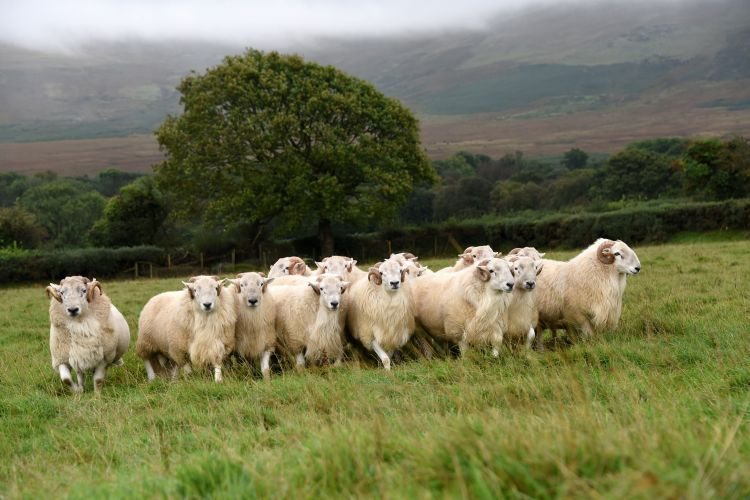
Wales is leading the way in developing genomic breeding values in the hill sheep sector thanks to a project's uniquely large DNA database.
The use of genomic breeding values is well established in the dairy sector and developing quickly in the beef industry.
However, this has not been the case for the UK sheep sector.
Using a large DNA database from Welsh sheep, information has been gathered during the Hill Ram Scheme - a five year project by Hybu Cig Cymru – Meat Promotion Wales (HCC).
Sheep genomics plays an important role in identifying and selecting livestock for mating with the best genetics for specific breeding objectives, such as ewe longevity, maternal ability, lamb weights and meat quality.
Genomic information can provide a wealth of intelligence and information, but it is particularly useful for traits which take a long time to be assessed, such as ewe longevity and traits that are expensive to record, such as meat quality.
HCC conducted a feasibility study showing that genetic links between flocks shows genetic merits that are relative to the wider recorded sheep population, offering breeders increased accuracy and confidence in genetics.
John Richards, Hybu Cig Cymru producer and processor lead said: “We are excited to be leading this innovative project within the sheep sector, here in Wales.
"The Hill Ram scheme has already explored the feasibility of developing genomic breeding values in hill sheep which will support our key priorities of farming in a sustainable and effective way.”
One way farmers will look to enhance breeding evaluations will be to move away from making predictions about genes thought to be inherited by an animal and use genomic information to share the actual genes it possesses.
As part of the Hill Ram Scheme, 50 farmers participated in the feasibility project taking tissue samples from lambs, ewes and rams to extract DNA sequences (genotypes) in order to determine the parentage of lambs.
Mr Richards said: "While these genotypes allow verification of parentage and show individual genes that may have a large impact on performance, they can also be used to inform breeding evaluations around thousands of tiny genetic variations on DNA strands that, when combined, contribute to the overall genetic merit of the animal.
"For breeding animals progeny records develop over time and the genomic component of its breeding values will gradually diminish.
"As accuracy values rise, estimates of genetic merit will become closer to the true breeding value of the sheep enabling breeding decisions to be made with greater confidence."
He added: “We now look forward to seeing how this legacy continues and further inform the wider sheep sector here in Wales.”
